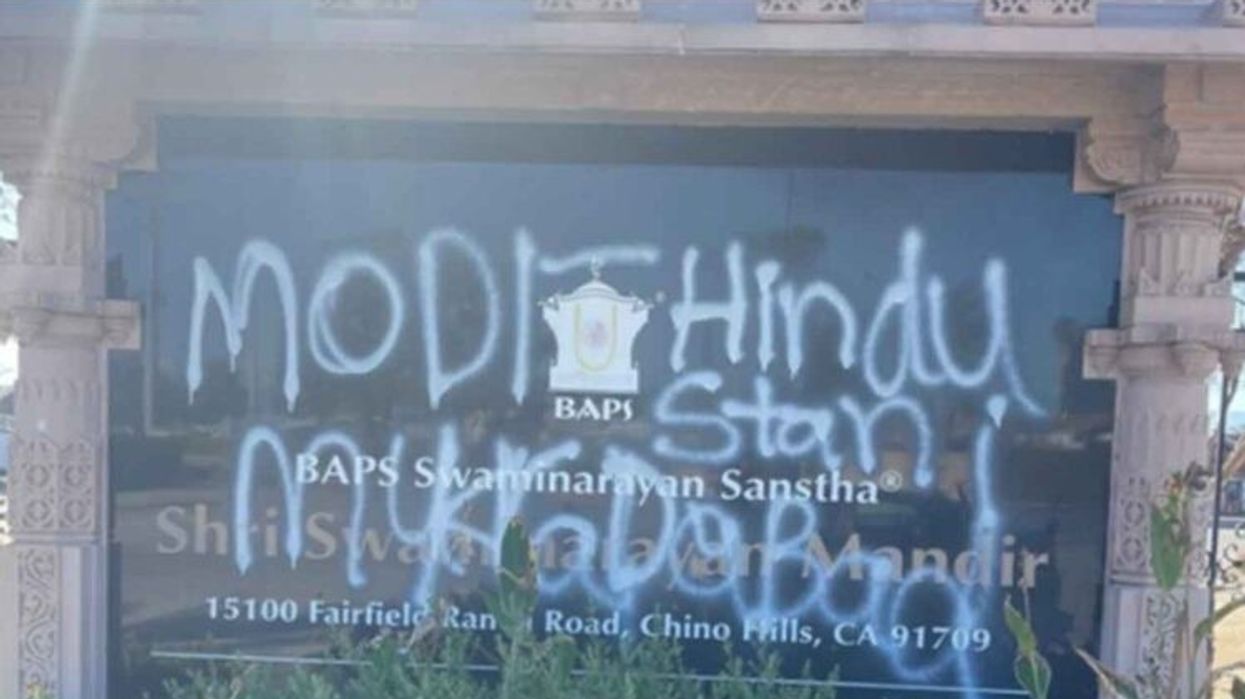THE Indian authorities have moved the High Court in London to seek permission to appeal against a magistrates’ court order turning down the extradition on human rights grounds of Kuldeep Singh, wanted in India as an alleged member of the banned terrorist organisation Khalistan Zindabad Force (KZF).
Singh, also known as Keepa Sidhu, is charged with conspiring with others to commit terror activities in Punjab dating back to 2015-16, including a plot to assassinate the then chief minister Parkash Singh Badal and deputy chief minister Sukhbir Singh Badal.
The 44-year-old is also accused of recruiting youths in Punjab to the banned organisation by offering them money and organising a meeting of separatists in a gurdwara.
District Judge Gareth Branston, presiding over the extradition case at Westminster Magistrates’ Court in London, ruled in January that as the offences carry maximum sentences and "no possibility of a review of such a life sentence with a view to its commutation, remission, termination or conditional release" it would be contrary to Article 3 of the European Convention of Human Rights.
"There is no dispute that these offences carry maximum sentences of life imprisonment. There is no dispute that Singh faces a real risk that he will receive such a sentence of life imprisonment," reads the judgment, dated January 25.
The Crown Prosecution Service (CPS), appearing on behalf of the Indian government in the legal proceedings, confirmed that the grounds of appeal against Singh’s discharge were lodged on February 19, with his lawyers scheduled to file a response this Friday (5).
"We have appealed the decision to discharge Singh. We haven’t had the permission decision yet," a CPS spokesperson said.
Singh faces a total of four charges in India, under Sections 17, 18 and 20 of the Unlawful Activities (Prevention) Act 1967 related to raising funds for terrorism, conspiracy and being a member of a terror outfit, and Section 25 of the Arms Act 1959, related to firearms offences.
The court documents note that he is accused of being a point of contact in Punjab and liaising with the head of the KZF, who was residing in Pakistan, and other co-accused members of the banned organisation, who lived in Belgium and England.
Singh, who entered the UK illegally in 2005, was on immigration bail when he was arrested at Loughborough Immigration Reporting Centre in eastern England in October 2019.
In September 2020, the Indian authorities were successful in revoking bail granted to him at the magistrates’ court level.
"I do place significant weight on the fact that Singh entered the United Kingdom illegally and remained at large and undetected for a period of some eight years. That suggests that he is a resourceful man and is a man who is capable of going to ground for an extended period when he chooses," noted Justice Swift, presiding over that appeal at the High Court last year.
Singh – who used a Punjabi interpreter in court – then remained remanded in judicial custody for the duration of the extradition hearings before District Judge Branston, which concluded in December last year.
In his judgment in January, Judge Branston accepted the Indian government assurances regarding prison conditions under which Singh would be kept as "clear, binding and sufficient".
"There is no evidence that Singh has previously been ill-treated in India. This country has considered and accepted previous assurances by the Indian government. There is no cogent evidence to suggest that they will not be complied with," he said.
He also noted that it is undisputed that there is evidence of a conspiracy to commit criminal offences in India but questioned the proportionality of a life term without parole.
The judge said: "In my judgment, if such a sentence were imposed upon Singh in the context of this case, then such a sentence would plainly be grossly disproportionate to the offending alleged.
"Whilst clearly very serious allegations, Singh is alleged to have been involved in the funding and recruitment of terrorist activity. As is observed, there is no evidence that anyone was actually killed as a result of his alleged activities. He is accused of acts preparatory to terrorist offences."
On prison conditions and the sentencing provisions in India, he relied on evidence and reports presented by Dr V. Suresh and D. Nagasalia, Advocates of the Madras High Court, and Arjun Sheoran, Advocate of the High Court of Punjab and Haryana.
Besides the human rights issue relating to a life sentence without parole, the court also found that there is "insufficient evidence to make a case requiring an answer by Kuldeep Singh".
If permission to appeal against the magistrates’ court order is granted, either on paper or through oral submissions, the case would then proceed for a High Court hearing.



















Clifford had previously pleaded guilty to the murders of BBC sports commentator John Hunt’s wife and two daughters at their home in northwest of London, in July 2024. (Photo: Hertfordshire Police /Handout via REUTERS)
Crossbow murderer found guilty of raping ex-girlfriend
A 26-YEAR-OLD man who murdered three women in a crossbow and stabbing attack has been found guilty of raping one of them, his ex-girlfriend, a British court ruled on Thursday.
Kyle Clifford had previously pleaded guilty to the murders of BBC sports commentator John Hunt’s wife and two daughters at their home in Bushey, northwest of London, in July 2024.
The attack led to a manhunt before Clifford was found injured hours later in a north London cemetery.
A jury at Cambridge Crown Court on Thursday convicted Clifford of raping 25-year-old Louise Hunt before killing her.
His sentencing for all the crimes is scheduled for Tuesday.
Clifford had admitted to murdering Carol Hunt, 61, and her daughters Louise and Hannah, 28. He had also pleaded guilty to charges of false imprisonment and possessing offensive weapons but denied raping Louise.
During the trial, the court heard that after killing Carol Hunt, Clifford waited for an hour before attacking Louise, tying her up, raping her, and then killing her with a crossbow. He later killed Hannah when she returned home from work.
The prosecution described Clifford, a former soldier, as committing a "violent, sexual act of spite" and said he was "enraged" after Louise ended their 18-month relationship. They told the court that he had "carefully planned" the attack.
Less than 24 hours before the killings, Clifford had searched for a podcast by social media influencer Andrew Tate, according to the prosecution. They argued that the murders were driven by the "violent misogyny promoted" by Tate.
Justice Joel Bennathan called Clifford’s crimes "dreadful" and "almost unspeakable".
(With inputs from AFP)